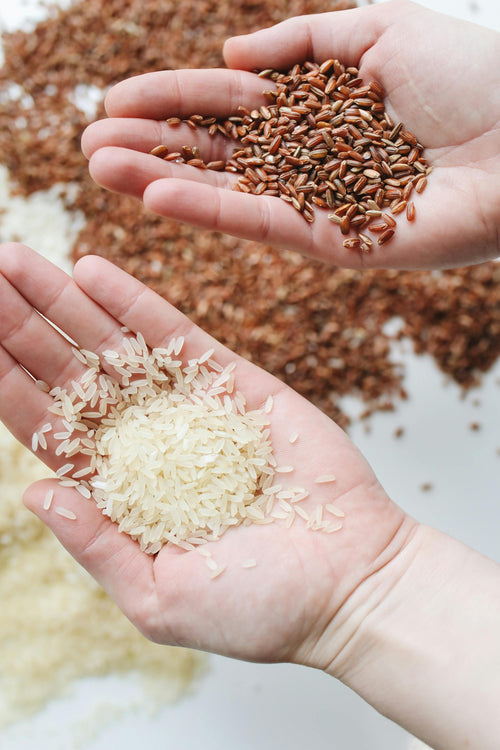What you must remember :
- Probiotics are the good bacteria that make up our intestinal microbiota.
- It is important to favor strains adapted for babies and to provide the body with sufficient probiotics for a good balance of the intestinal microbiota.
- The main strains beneficial for babies are lactobacilli and bifidobacteria
- Taking probiotics is recommended from birth and there are no contraindications to taking them. However, pediatric advice is strongly recommended.
What are probiotics?
Probiotics are live microorganisms (bacteria or yeast) which aim to maintain a healthy intestinal microbiota and maintain general health well-being by acting on different aspects. They have a preventive and curative role. They aid digestion and improve gastrointestinal disorders such as diarrhea , constipation , gas , etc.
Where are probiotics found?
1 - In breast milk
Breast milk naturally contains good bacteria like Bifidobacterium , Lactobacillus , and Staphylococcus. In breast milk, we also find oligosaccharides, sugars, used as food for the growth and development of good bacteria . It is therefore a good source of probiotics for infants , but also of prebiotics .
2 - In food
Probiotics are present in fermented foods , that is to say having undergone the process of fermentation of the sugars naturally present in these foods, by bacteria. This process can improve the flavor, texture and shelf life of foods. It also makes it possible to increase the nutritional values of foods (vitamins, enzymes and probiotics) aimed at providing health benefits.
The most beneficial and suitable fermented foods for infants are yogurt, kefir and sauerkraut.
3 - In food supplements
Probiotics are also available in the form of food supplements , in different forms (tablets, capsules, capsules, powder, etc.).
At DIJO, we know the importance of probiotics for everyone, so we created, Child Probiotics , probiotics suitable for children aged 0 to 18, and therefore well designed to meet the needs of infants. They bring together 3 strains of probiotics (Lactobacillus acidophilus, Lactobacillus rhamnosus and Bifidobacterium infantis), dosed at 10 billion CFU aimed at balancing the intestinal microbiota of these little ones.
How are probiotics beneficial for infants?
1 - In terms of digestive health
Probiotics are very interesting in infants since they enrich the intestinal microbiota with beneficial bacteria, thus facilitating digestion and countering digestive disorders, in these young children with a digestive system that is not yet fully mature due to production of their digestive enzymes. In infants, probiotics have shown beneficial effects on colic, constipation and diarrhea, particularly those associated with antibiotic treatment.
2 - At the level of the immune system
These good bacteria also act on the immune system . They will stimulate our immune cells , and in particular the production of antibodies. They are capable of modulating the inflammatory response by acting on the signaling molecules of the inflammatory response. Probiotics are real allies for infants in the fight against external diseases.
3 - Regarding skin problems, allergies
Probiotics will also help reduce the risk of allergic reactions following modulation of the body's immune response to allergens. Providing immune system support with probiotics will also help reduce skin diseases in infants, such as infant eczema.
What are the recommendations for probiotics for infants?
1 - Product safety and quality
To guarantee the safety of probiotics in infants, we advise you to choose probiotics with strains studied to be suitable for infants, to pay attention to the origin of the products, to monitor their good tolerance, to respect the indicated dosage, and the conservation advice.
For administration to infants, probiotics packaged in capsules, we recommend opening the capsules, and diluting their contents in water, a drink or a bottle, 30 minutes before the solid meal, if the latter is already integrated into eating habits.
2 - Potential side effects
Overall, probiotics have few side effects and are considered safe. Side effects that have been noted are related to the digestive system and include gas, bloating , abdominal pain, intestinal transit disorders . These side effects remain temporary, while the body adapts to the introduction of probiotics. Therefore, we recommend monitoring the occurrence of any signs of side effects, and reducing the dose if necessary, or even eliminating them in the event of severe symptoms .
Sources:
[1] Depoorter, L., & Vandenplas, Y. (2021). Probiotics in Pediatrics. A Review and Practical Guide. Nutrients , 13 (7), 2176.
[2] Ferro, LE, Crowley, LN, Bittinger, K., Friedman, ES, Decker, JE, Russell, K., Katz, S., Kim, JK, & Trabulsi, JC (2023). Effects of prebiotics, probiotics, and synbiotics on the infant gut microbiota and other health outcomes: A systematic review. Critical reviews in food science and nutrition , 63 (22), 5620–5642. https://doi.org/10.1080/10408398.2021.2022595
[3] Szajewska, H., Canani, RB, Guarino, A., Hojsak, I., Indrio, F., Kolacek, S., Orel, R., Shamir, R., Vandenplas, Y., van Goudoever, JB, Weizman, Z., & ESPGHAN Working Group for ProbioticsPrebiotics (2016). Probiotics for the Prevention of Antibiotic-Associated Diarrhea in Children. Journal of pediatric gastroenterology and nutrition , 62 (3), 495–506. https://doi.org/10.1097/MPG.0000000000001081
[4] Marzet, C., Burgos, F., Compare, M., Gerold, I., Tabacco, O., & Vinderola, G. (2022). Approach to probiotics in pediatrics: the role of Lactobacillus rhamnosus GG. Archivos Argentinos de PediatríA , 120 (1). https://doi.org/10.5546/aap.2022.eng.e1
[5] Pärtty, A., Rautava, S., & Kalliomäki, M. (2018). Probiotics on Pediatric Functional Gastrointestinal Disorders. Nutrients , 10 (12), 1836. https://doi.org/10.3390/nu10121836


















